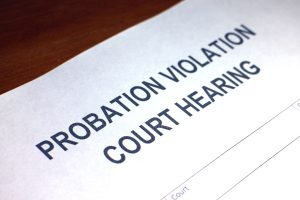Fort Lauderdale domestic violence offenses are taken very seriously by police, prosecutors and judges. While most domestic violence cases are misdemeanors, certain circumstances can elevate them to felony status, leading to more severe penalties — including prison, steep fines, and a permanent criminal record. Understanding what factors are more likely to lead to a felony domestic violence case – and the strategies a Broward criminal defense lawyer may use to help chip away at the prosecutors’ case – is important if you or a loved one are facing domestic violence allegations. 
How Florida Classifies Domestic Violence Offenses
F.S. § 741.28 explains that domestic violence may encompass a range of offenses committed against a family or household member. This can include a spouse, ex-spouse (previously married), individuals who live together or those who share a child. Such offenses can include assault, battery, stalking, kidnapping, or false imprisonment.
For the most part, domestic violence will be charged as a misdemeanor. However, it can be charged as a felony under the following circumstances:
- Prior convictions. A history of previous domestic violence convictions has the potential to bump a new charge up to felony status. A second or subsequent domestic violence battery offense is typically charged as a third-degree felony, which in Florida is punishable by up to five years in prison. Furthermore, per F.S. § 775.084, repeat offenders can face more serious penalties as habitual offenders.
- Severe injuries. If the alleged victim was seriously hurt, the domestic violence charge can be bumped up to aggravated battery, which is a second-degree felony, punishable by up to 15 years in prison. What qualifies as “serious”? Often-cited grounds include broken bones, severe lacerations, or permanent disfigurement.
- Use of a weapon. Domestic violence that involves the use of a weapon, such as a firearm, knife, baseball bat or other object, often results in a charge of aggravated assault or aggravated battery. Even if you didn’t actually use the weapon, simply displaying it can escalate the charge. Typically this is a third-degree felony, punishable by a maximum of five years in prison.
- Allegations of child endangerment. If there was a child present during an alleged incident of domestic violence, prosecutors will sometimes use this to elevate the charge to a felony. Sometimes, this can even lead to additional charges, such as child abuse or child neglect.
- Violations of a protective order. If there was an active restraining order that was violated during the alleged act of domestic violence, this is likely going to mean felony charges.
How Fort Lauderdale Defense Lawyers Fight Back
Fort Lauderdale criminal defense attorneys have many strategies to try to minimize odds of conviction, or at least mitigate the potential severity of the penalties imposed. Continue reading
 Fort Lauderdale Criminal Attorney Blog
Fort Lauderdale Criminal Attorney Blog





